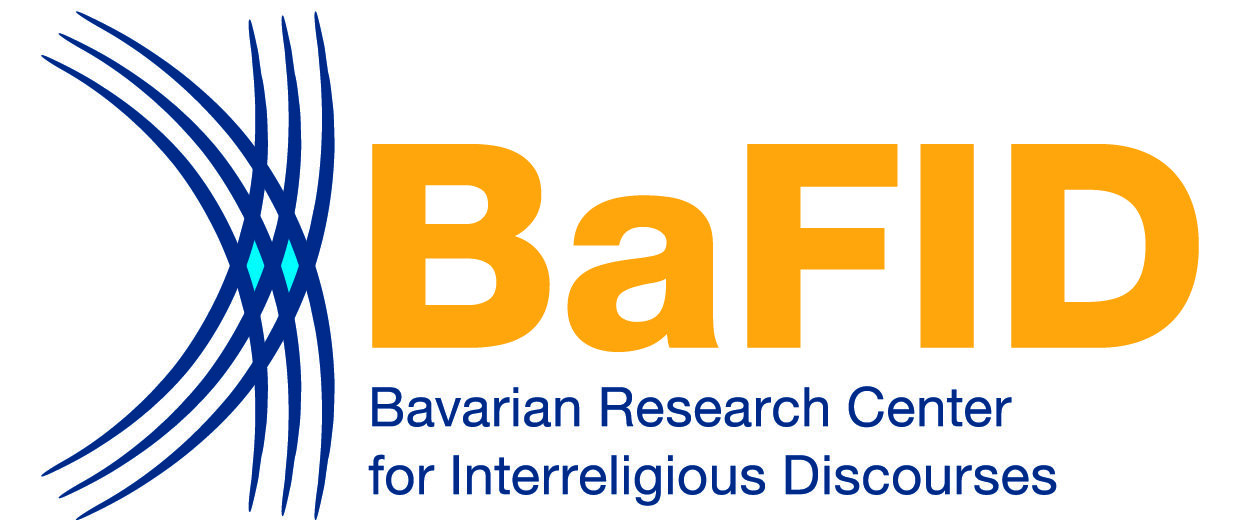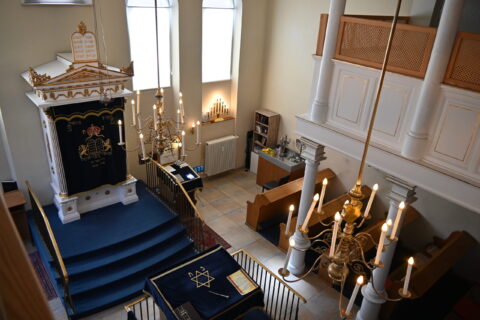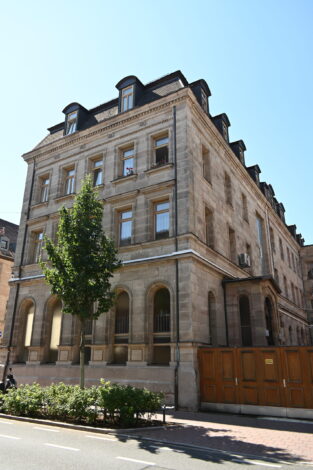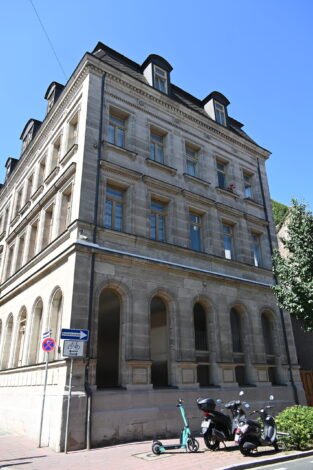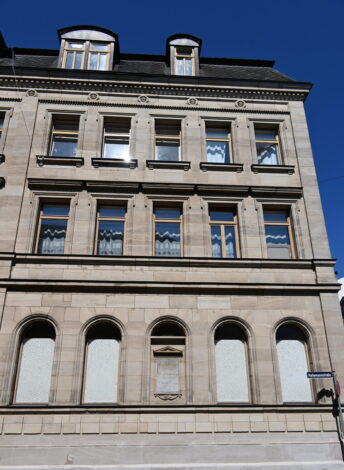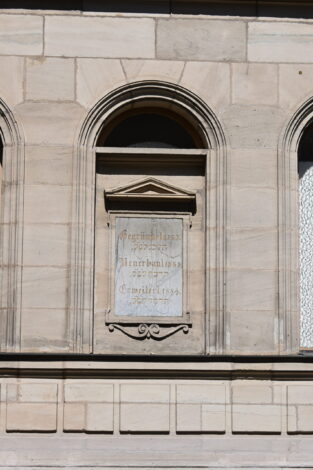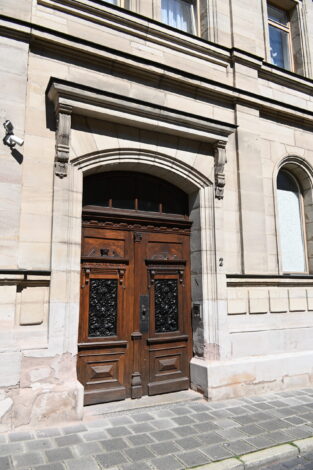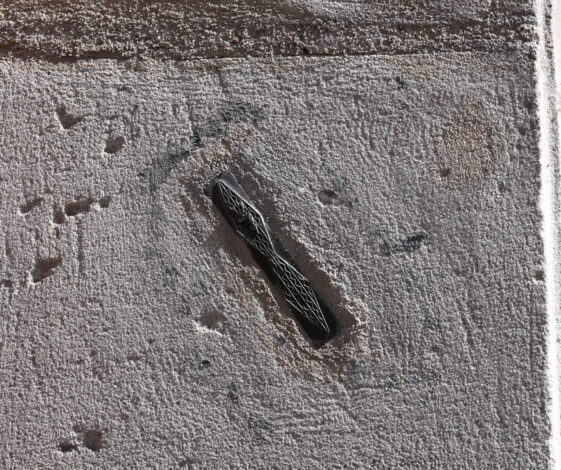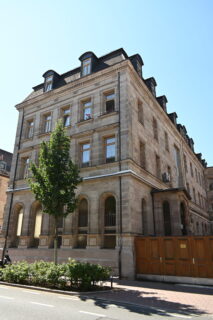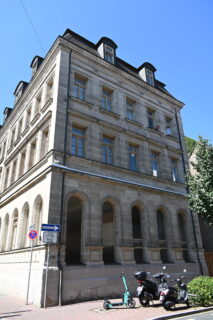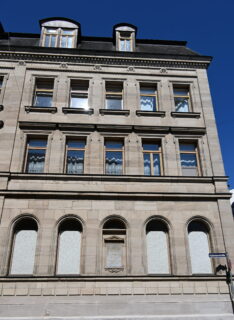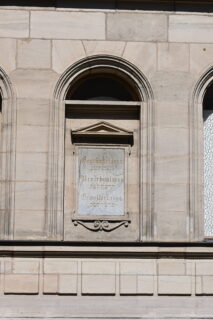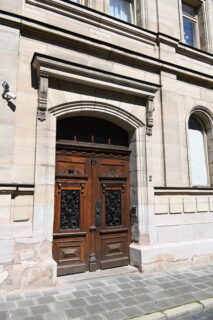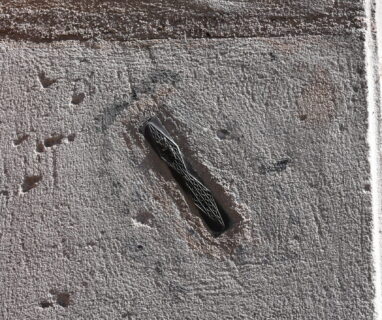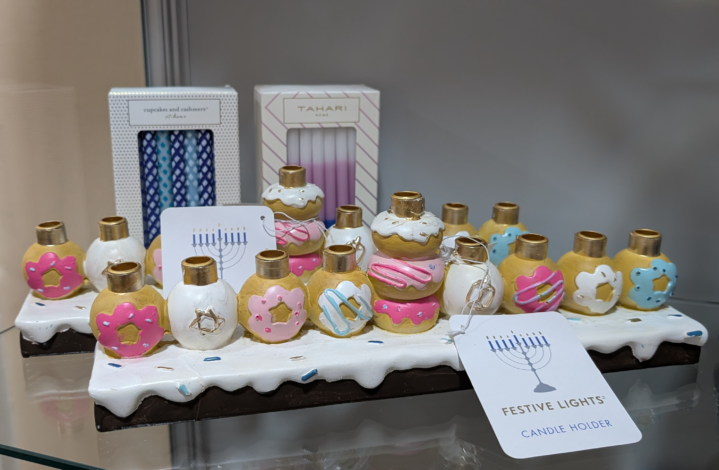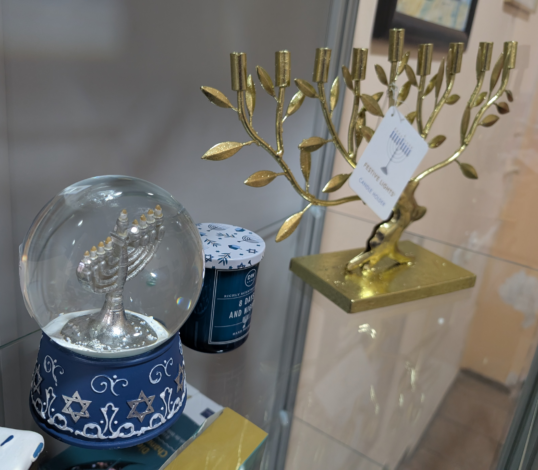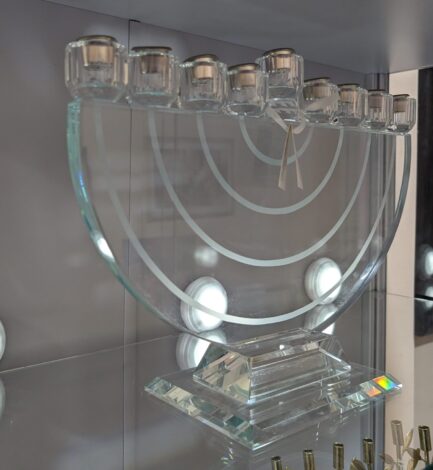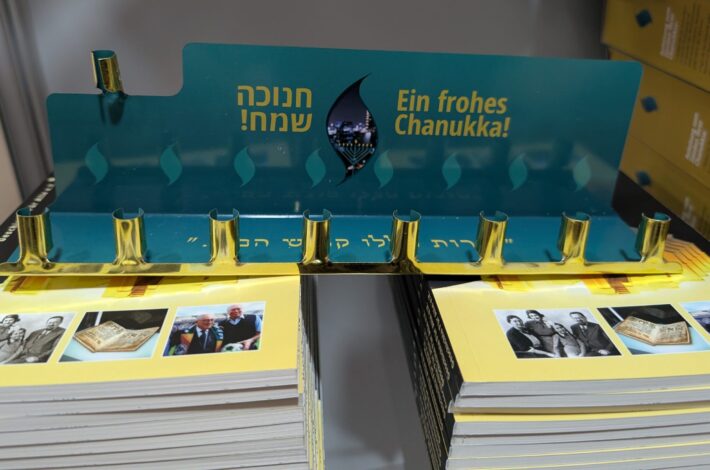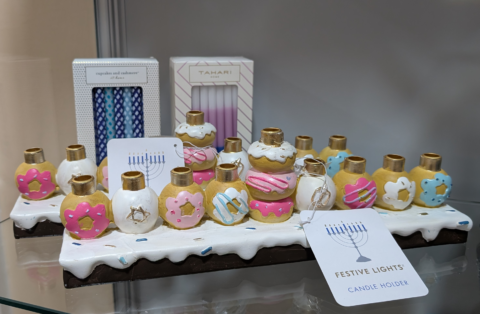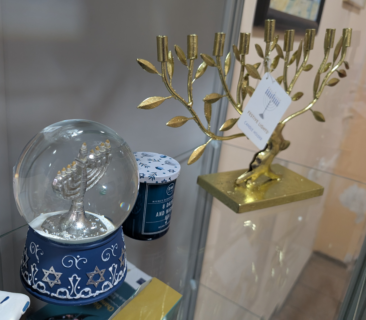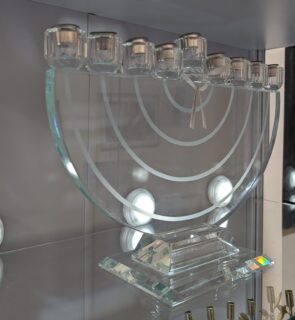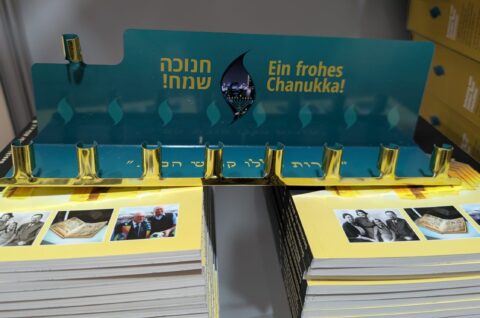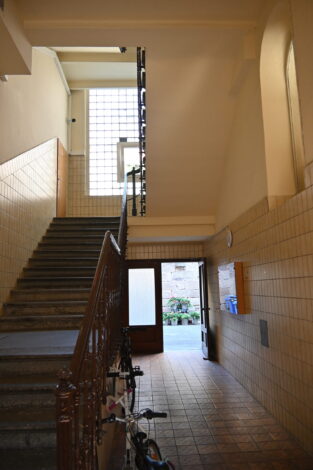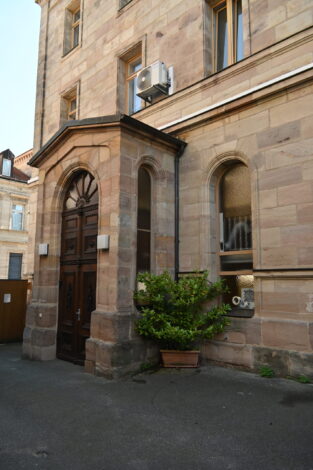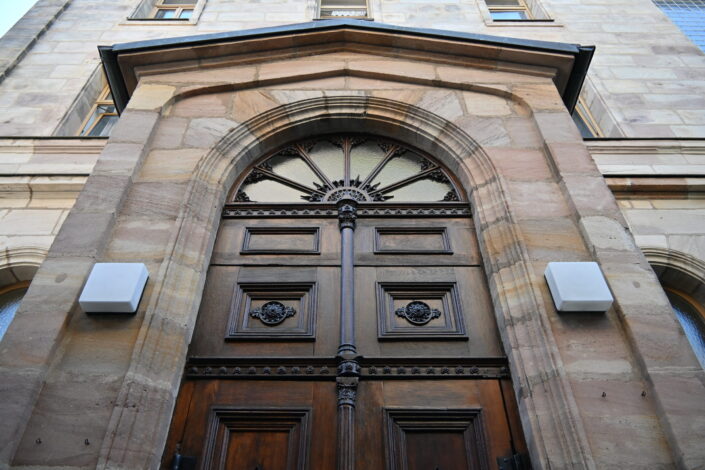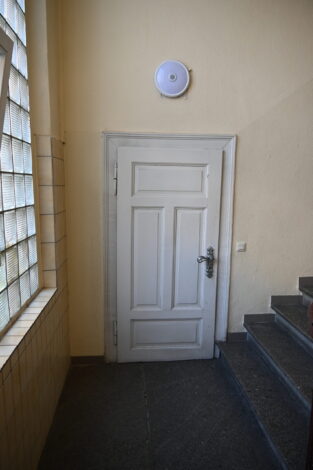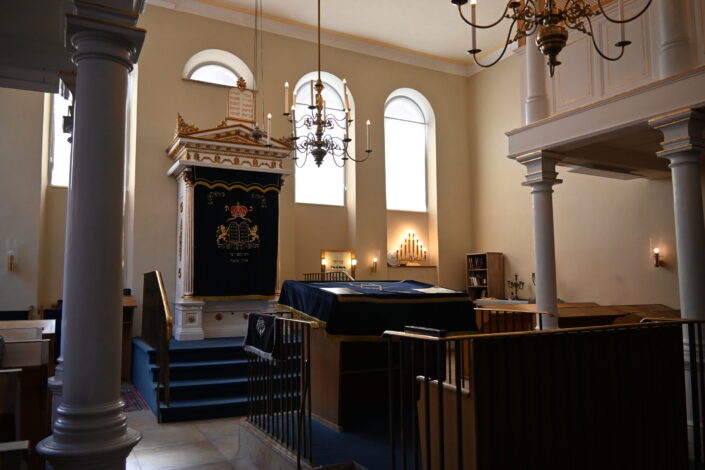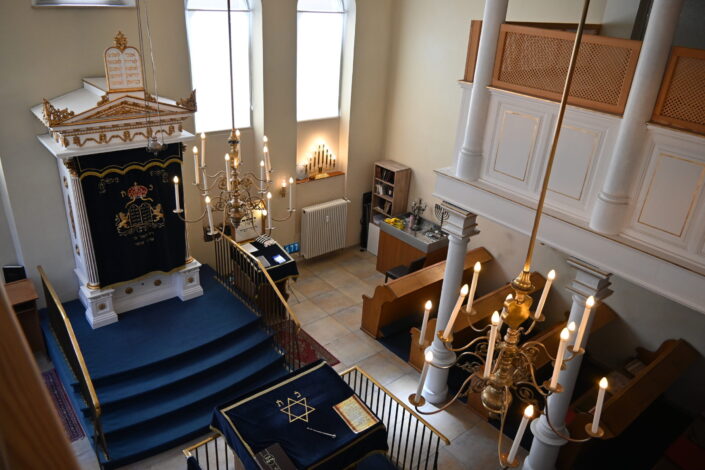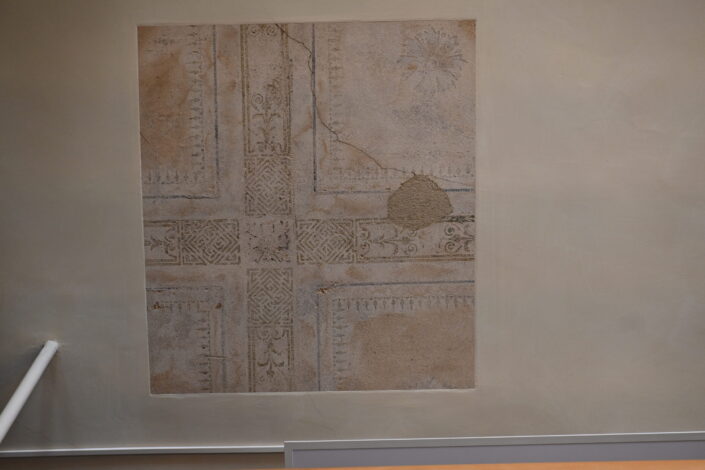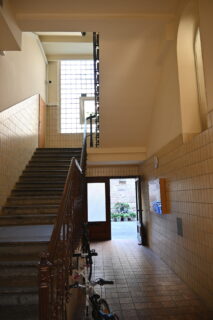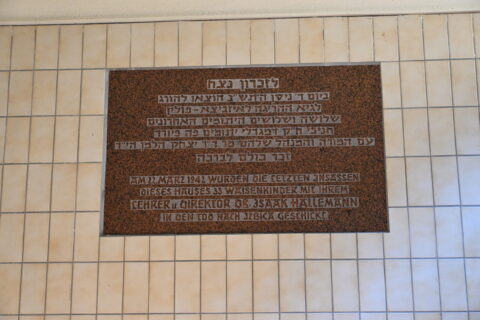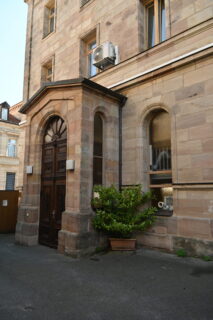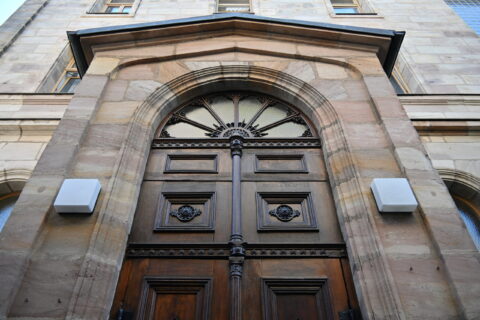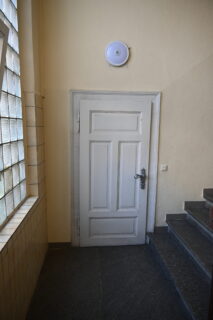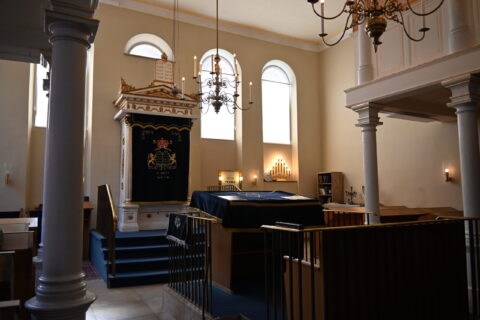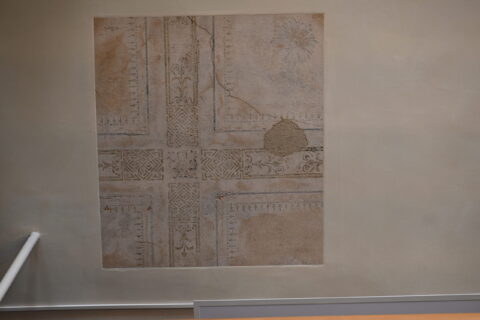January: The History of the Jewish Community of Fürth and its Synagogue
Our interfaith calendar shows the synagogue in the city of Fürth in January. The local Jewish community has an eventful history that is deeply rooted in the town’s history. The first Jewish inhabitants in Fürth were mentioned as early as 1440, and from 1528 the community played an important role in southern Germany. Despite many challenges and persecutions over the centuries, the Jewish community of Fürth has preserved its traditions and revitalized its religious and cultural activities time and again.
The Origins of the Orphanage and the Synagogue
In 1763, on the initiative of Israel Lichtenstaedter from Prague, the first Jewish orphanage was built in Fürth on Gänsberg. Originally, the building served primarily as a charitable institution for orphans, where they were not only provided with clothing and food but also received an education. The orphanage, which later became known as the Israelite Orphanage, was only able to open its doors to children from all over Bavaria when it was rebuilt in Julienstraße (now Hallemannstraße) in 1868, and girls were also admitted here from 1884.
A synagogue was also integrated into the new building, which served as a prayer room for the orphans. This synagogue, which was built together with the orphanage, survived the destruction of the Second World War and the Reichspogromnacht and still stands today.
After the end of the Second World War, the Jewish community of Fürth began to reassemble in its synagogue. The first service after the war took place in the synagogue in 1945 and marked the revitalization of religious life in Fürth. Reconstruction and renovation of the synagogue also began. In 1967, the building was completely renovated and equipped with a mikvah, which from then on served as a religious immersion bath for the Jewish community.
Today’s Synagogue and the Community
Today, the synagogue in Hallemannstraße, a three-story sandstone building, is the center of the Fürth Jewish community. The synagogue, which was preserved through post-war reconstruction, is now used by around 350 members, 100 of whom actively participate in community life. The members of the community are mainly older people. Nevertheless, the community offers numerous cultural and social activities that promote and support Jewish life in Fürth.
These include German and Hebrew courses, assistance for refugees, especially from Ukraine, and home visits and social work, supported by the Bavarian State Association. The community works closely with the Central Welfare Office of Jews in Germany (ZWST) and regularly organizes holiday camps and trips for its members.
Another important part of the community’s program is the Torah classes, which are held twice a week by a rabbi. Joint activities are organized with children, especially during Jewish holidays such as Hanukkah. For example, traditional doughnuts (sufganiyot) are baked and eaten together in the community hall with music and singing. On Hanukkah, lights are also lit in the courtyard of the synagogue, symbolizing light in the darkness—a tradition that is also reflected in the arches of light in the Erzgebirge, where miners hang their burning lamps in a semi-circle. Today, many people place such candle arches in their windows at Christmastime.
The community also attaches great importance to appealing to people outside of religious practice. For example, joint city trips are organized, such as to Vienna, and there are regular visits to concerts or events for children. This is intended to help attract more people, including secular Jews, to church services and religious activities.
The Role of the Municipality in the Local Context
Over the centuries, the Jewish community of Fürth has always played a central role in the social and cultural life of the city. As early as the 16th century, there was a thriving Jewish community that was not only religious but also economically and socially integrated into the city. The Jewish inhabitants of Fürth played a key role in the economic upturn of the town, among other things through their philanthropy and their role as merchants and landowners.
In 1719, the Jews in Fürth were granted the ‘Reglement für Allgemeine Judenschafft’ (regulations for common Jewry), which guaranteed them special rights, including the free choice of rabbi and the free construction of synagogues. The community developed into an important center of Jewish life in southern Germany, and the Jewish school and college were open to Christian teachers and students. In the years that followed, the Jewish community of Fürth became known not only for its religious activities but also for its commitment to the emancipation of Jews in Bavaria and Germany. The ‘Franconian Jerusalem’ was born.
Unfortunately, Jewish life in Fürth was destroyed by the persecution of national socialism. Many members of the community were murdered or deported, and the community itself was almost completely wiped out. However, after the Second World War, the community began to rebuild its religious and social activities under the leadership of Rabbi David Spiro and community chairman Jean Mandel.
Outlook and Preservation of the Jewish Heritage
The Jewish community of Fürth continues to be committed to maintaining and promoting Jewish life in the city. In addition to the courses and activities already mentioned, the ritual bath (mikvah), which is an important part of religious life, is also to be renovated. The synagogue itself is a place of meeting and prayer but also a cultural center that offers guided tours for those interested in learning about the history and significance of the Jewish community in Fürth. There is also close cooperation with the Jewish Museum of Franconia.
Despite the challenges, the community remains active and thus contributes to keeping the Jewish heritage and traditions in Fürth alive. In the Fürth Integration Advisory Board, the community, especially the 1st Chairwoman Julia Tschekalina, shows how the community has developed into a contact point for Ukrainian refugees, not only of Jewish faith, with various collaborations and joint activities with the German-Israeli Society DIG, the Fürth Volunteer Centre, the Cultural Office of the City of Fürth, the Rias (Research and Information Centre on Anti-Semitism), and the Initiative for Christian-Jewish Cooperation.
You can contact the community here: Israelitische Kultusgemeinde Fürth K.d.Ö.R.
